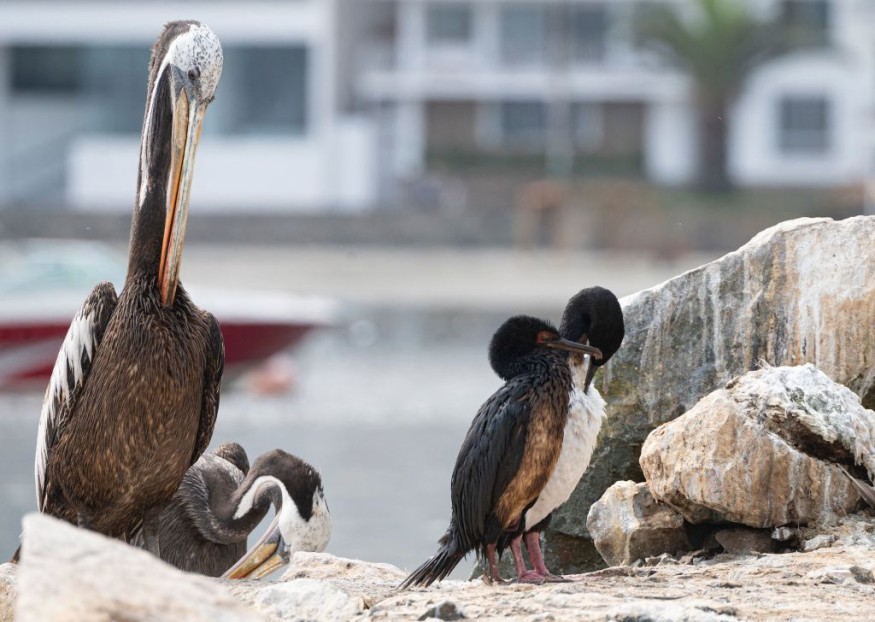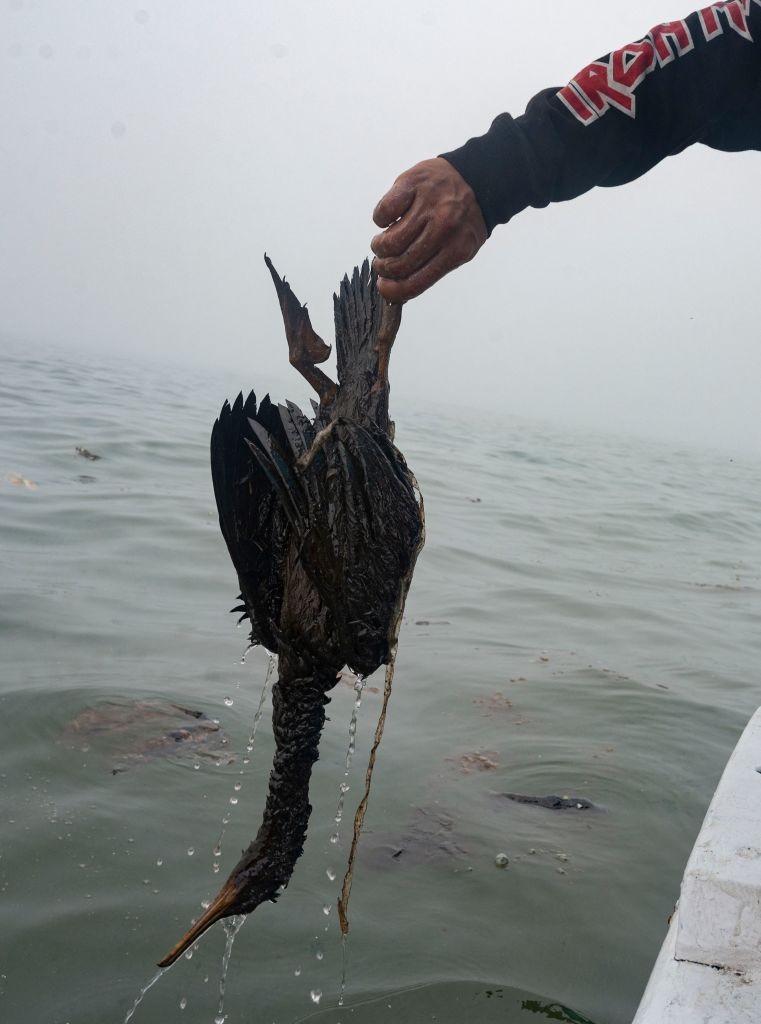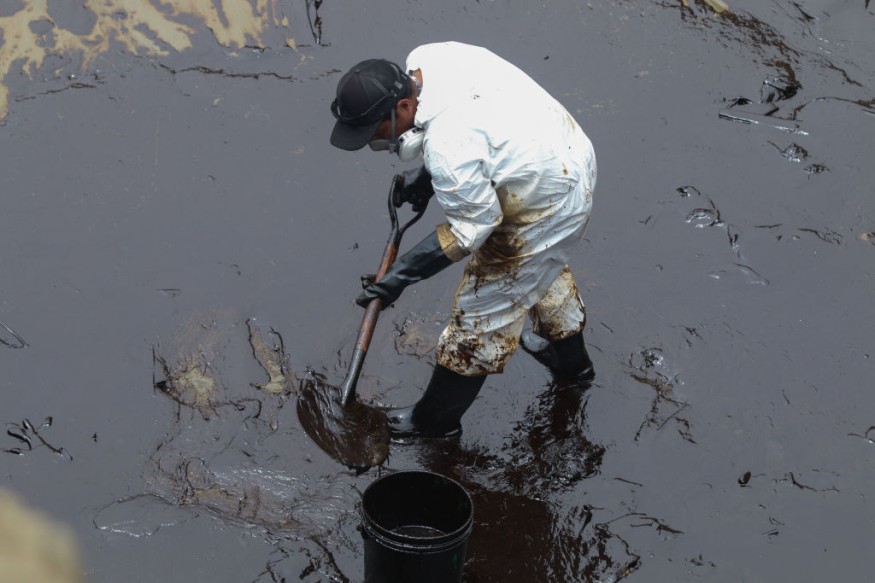Peru declares an environmental emergency after an oil leak threatens rare Humboldt penguins and thousands of birds. A spill produced by unusual waves from a volcano eruption in the south pacific prompted the Peruvian government to declare an environmental emergency on Saturday.
After 6,000 gallons of petroleum spilled off Peru's coast in the aftermath of the Tonga tsunami, a Lima zoo is scrambling to preserve hundreds of seabirds, including endangered penguins.
Saving the Birds

More than 40 species were saved from contaminated beaches and natural areas and transported to the Parque de Las Leyendas zoo, including Humboldt penguins, which are fragile by the International Union for Conservation of Nature.
"The birds' prognosis is unknown," Liseth Bermudez, a scientist, told AFP. "We're doing everything we can; it's a rare occurrence, and we're giving it our all."
The birds are being cared for by a team of vets washing them in special detergents to remove the stifling oil.
Read also: Marine Bacteria Found Capable of Biodegrading Diesel and Oil: Can it Clean Up Oil Spills?
Immediate Treatment

Antifungal and antibacterial medicines, as well as vitamins, were administered to the animals. While ministering to a bird, Bermudez observed, "We have never seen something like this in the history of Peru."
"We didn't expect it to be as big as it turned out to be."
Environmental Emergency
Peru has declared an environmental emergency after a ship was battered by large waves while unloading at a refinery last Saturday, over a million liters (264,000 gallons) of petroleum poured into the water.
The enormous waves were caused by the eruption of an underwater volcano hundreds of kilometers (miles) distant in the archipelago of Tonga.
Contaminated Beaches
The accident near Lima has contaminated beaches and affected the fishing and tourist businesses, and employees have been cleaning up the debris nonstop.
If the oil spreads, more animals will perish, according to Peru's Serfor forestry agency biologist Guillermo Ramos.
"There are species here that feed on polluted crustaceans and fish," he explained.
Since the spill, Serfor personnel have discovered several dead birds and sea otters on beaches, and in nature reserves, he noted.
More than 150 bird species rely on the sea in Peru for food and reproduction. Different varieties of cormorants and six Humboldt penguins were among the birds retrieved alive but needed assistance.
The oil might damage the reproductive ability of some species and cause birth deformities, according to Juan Carlos Riveros, scientific director of the rescue NGO Oceana Peru.
According to the health ministry, sea currents have pushed the spilled oil down the coast more than 40 kilometers (25 miles) from the refinery, damaging 21 beaches and warning would-be bathers to stay away.
Complicated by Tonga

The government has filed a claim against Repsol, the Spanish oil corporation that owns the ship.
However, the corporation disputes guilt, claiming that maritime authorities sent no notice of anomalous waves following the Tonga eruption.
Also Read : Environmental Agency Allegedly Told Staff to Ignore Reports on Low-Impact Pollution Due to Budgetary Reasons
For similar news, don't forget to follow Nature World News!
© 2025 NatureWorldNews.com All rights reserved. Do not reproduce without permission.





